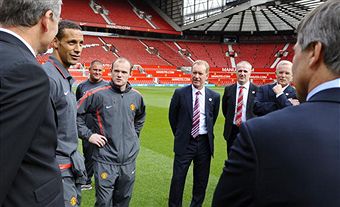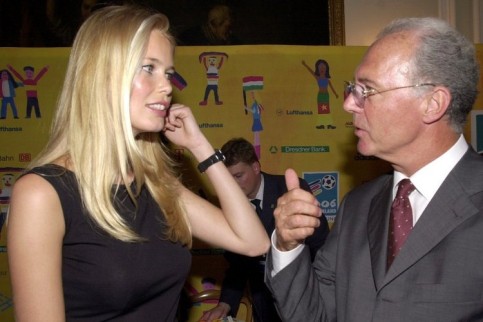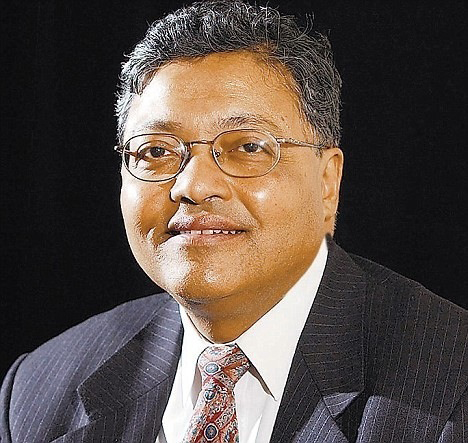Just over ten years ago, after a visit to Downing Street of a FIFA delegation not very dissimilar to the one last Monday, Tony Banks, then the Prime Minister’s special envoy to the 2006 World Cup bid, made one of his exuberant comments.
“You know,” he said, “this visit proves that England is the only country that can defeat South Africa for the 2006 World Cup, Germany is out of it. I am now so close to these FIFA members I feel they are joined to the hip to me.”
A few months later, when some of the same FIFA members met in Zurich to decide who should stage 2006, England were eliminated in the second round, Morocco having fallen in the first. Germany got to the final and beat South Africa on a sort of penalty shoot-out FIFA committee style, the New Zealander Charles Dempsey, who represented Oceania, deciding to abstain and giving Germany victory.
I am reminded of this story because watching the events surrounding the FIFA inspectors visit to England appears to have generated the same optimism at least in the media. It must be said been that the bid leaders have been careful to avoid the sort of hubris Banks made a specialty of and were quick to distance themselves even from the remarks of Deputy Prime Minister Nick Clegg that the English bid was “unbeatable”.
This was not remotely in the Banks class but lest, it be thought arrogant that the word emerged, this was not scripted and certainly not by the bid team.
However the effect of the visit is very like that of ten years ago. The impression created is that England have ticked all the boxes and could stage the competition tomorrow let alone in 2018. Not surprisingly the bookmakers have made England favourites with some seeing this as Russia 0 England 1.
 Yet a lot needs to be done to convert sound bytes and favourable media images into votes and England would do well to study how the Germans, supposedly not in the race according to Banks, won in 2006.
Yet a lot needs to be done to convert sound bytes and favourable media images into votes and England would do well to study how the Germans, supposedly not in the race according to Banks, won in 2006.
Of course, unlike England or for that matter any other country in the 2018 race, Germany went into 2006 knowing that they had the near unanimous support of their parent federation UEFA, with seven of its eight members on the executive voting for the Germans.
Thi, of course, was part of the much disputed gentlemen’s agreement with the Germans and the UEFA leadership claiming England had pledged to support Germany for 2006 and the FA disputing that.
But, while this meant that Germany could easily survive the early rounds, they needed another six votes to reach the winning margin of 13. It was well known that Sepp Blatter, the FIFA President, wanted South Africa. The South Africans made a deal with South America which meant Brazil withdrew from the race and gave their three votes to South Africa. Once Morocco was eliminated all four African votes came to South Africa. And this left Asia to play for. The South Africans had high hopes in Asia but the Germans trumped them there and England would do well to study how they did it.
From the start the Germans did not much rate England and concentrated on the country they considered their main rival South Africa. They knew they had nobody to match Nelson Mandela. And remember a Mandela, who had just stepped down having been the first man elected as President of the country on a one man one vote election, was at the height of his powers. The South Africans used him relentlessly.
The day of the vote at five in the morning Mandela rang Dempsey to ask him to vote for South Africa. Dempsey was not best pleased at being woken up so early and in any case he had decided not to follow Mandela’s wishes. Then even as the FIFA executive was voting Mandela rang the King of Belgium. The result was the King rang FIFA and asked to be put through to Michel D’Hooghe, a Belgium doctor and FIFA executive member. The meeting was interrupted for him to take a call from his King who relayed Mandela’s request. But again to no effect. D’Hooghe was committed to Germany.
 The Germans, in contrast, shunned such outward show. They worked at two levels. At the FIFA level it was all Franz Beckenbauer. Who could have better credentials? Even at the final presentations to FIFA while Claudia Schiffer and Gerhard Schroeder were present neither spoke, it was all left to the Kaiser.
The Germans, in contrast, shunned such outward show. They worked at two levels. At the FIFA level it was all Franz Beckenbauer. Who could have better credentials? Even at the final presentations to FIFA while Claudia Schiffer and Gerhard Schroeder were present neither spoke, it was all left to the Kaiser.
But it was behind the scenes that the Germans used their commercial and political muscle to win the Asians over.
This was often done at Government to Government level and one Asian member, who was close to the South Africans, openly confessed that his vote belonged to his Government. If he was told to vote for Germany he would have to and he duly did.
Asia’s four votes were crucial. The Germans knew once England was eliminated David Will of Scotland would switch to Germany. Add four from Asia and that would make 12.
This left Dempsey. He was voting for England until England lost. He had been under pressure from Blatter who had been to his Oceania Congress to mandate him to vote for South Africa. The Germans worked out a plan with Dempsey. Suppose, after England lost, Dempsey just abstained so much so that he had actually left the meeting before a decision had been reached and was well on his way to Singapore and home.
But then the question was how would FIFA treat the abstention? Would it mean, in Dempsey’s absence, the FIFA executive would now be 23 not 24. If so then you would only require 12 to win.
The night before the vote, after Dempsey and Beckenbauer had spoken and worked out the strategy, the Germans wrote to FIFA and asked how the FIFA rules dealt with an abstention? FIFA were surprised to receive the letter but replied that it would be as if the member was not present and with 23 voting the victory margin was therefore 12. The Germans knew that they were home and dry and that is how it turned out. South Africa without Asian support could not go beyond 11, Germany got 12 and, as much as the Africans cursed the Asians, it was the Germans who had proved that their economic and political power was mightier than Nelson Mandela to swing Asia.
A similar game will have to be played by whoever wants to win 2018 and looking round the England bid team, while they can put on big events, have they quite that mixture of political clout within FIFA and political and economic muscle outside to do it?
In the past British bids have failed because the bid teams could not work the politics of the organisation. London 2012 was a glorious exception, Tony Blair outclassing and out charming Jacques Chirac in Singapore and Seb Coe and Keith Mills doing the business inside the IOC rooms. Coe rediscovered his Indian heritage and did a very useful deal which enabled India to get the Commonwealth Games and London some vital Asian votes.
David Cameron has some of the Blair flair and could outclass Vladimir Putin but who can play the Coe-Mills role in 2018? That still remains to be seen and England will need to discover a similar duo to bring 2018 home.
Mihir Bose is one of the world’s most astute observers on politics in sport and, particularly, football. He formerly wrote for The Sunday Times and The Daily Telegraph and until recently was the BBC’s head sports editor.
